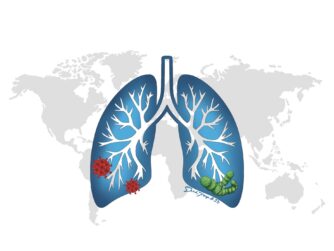By Lucy Tate
It’s not easy to think about goals when everything inside you has collapsed. That familiar talk about “just put one foot in front of the other” can feel cruel when the ground itself is gone. But something strange happens after loss. The noise fades, and what you’re left with are these quiet, flickering choices. They don’t ask you to be productive or even hopeful. They ask you to stay. And one way to do that is to pick a direction, however small, and move toward it with all the gentleness you can manage.
Starting Small, Staying Steady
You don’t need a five-year plan. You don’t even need a five-day plan. What you might need is a nap, or a reason to get out of bed, or just someone to nod when you say, “I couldn’t do much today.” That’s fine. You’re building something, and small doesn’t mean meaningless. Try to set incremental goals each month—things that ask for effort without demanding your soul. Maybe it’s brushing your teeth every morning, or replying to two emails, or walking to the end of your street. Let your wins be tiny and real and yours.
Documenting Your Healing
Write it down. Not for a therapist, or a memoir, or even for later. Just for now. The act of journaling forces your mind to slow down and sit with what’s swirling. A personal healing journal doesn’t have to be poetic or deep or daily; it only has to be yours. If you want a way to save or revisit your entries, PDF editor is an online tool that turns your notes into PDFs you can store or edit. You can upload a file, make changes, and download it again; simple, private, and practical.
The Power of Routine
After loss, time becomes jelly. Hours slide into days, and nothing sticks. That’s where routine comes in, not as discipline but as scaffolding. If you establish a routine, you’re giving yourself a place to land, even if the landing is soft and wobbly. Eat at the same time every day, shower in the morning, light a candle at night—these things won’t heal you, but they might hold you. In grief, repetition isn’t boring, it’s anchoring. And it reminds your body that time hasn’t stopped, even if it feels like it has.
Move Your Body, Ease Your Mind
You don’t have to train for a marathon. You just have to move. Cry while you walk. Scream into your pillow during a stretch. Grief lives in the body, and one way to loosen its grip is to keep the body moving through it. Even light exercise can be a kind of pulse check, a way to say, I’m still here. Regular movement can help regulate your sleep cycle, and let’s be honest, sleep’s a mess when your heart’s broken. This isn’t about getting fit. It’s about making space for your nervous system to breathe.
A New Chapter Through Education
Grief is the rudest kind of ending, but sometimes it can also mark a beginning you didn’t ask for but still get to shape. Going back to school isn’t a fix, but it can be a counterweight, a structured, forward-facing thing. Learning wakes up a different part of your brain, one that’s too busy to spiral. The beauty of online programs is that they meet you where you are, pajamas and all. Whether you’re drawn to a teaching, nursing, or business degree, there’s probably a track that fits your schedule and mental bandwidth. And the sheer fact of learning something new can be its own kind of balm.
Building a Support Network
You’re not supposed to do this alone, and yet, so often you are. The people who swore they’d be there ghost you, while the ones you barely knew show up with soup. Let them. Let it be awkward. Let it be uneven. But don’t stay in your silence. There are ways to find a grief support group: online, in-person, faith-based, secular, structured, loose. Try one. If it’s not a fit, try another. Somewhere out there is someone who won’t flinch when you say the hard thing, and that’s worth searching for.
Self-Care Isn’t Selfish
You’ve heard this one before, and maybe it makes your eyes roll. But you know what? You’re allowed to treat yourself like you matter. Because you do. Grief doesn’t cancel out your right to joy or comfort or even indulgence. Take the nap. Order the takeout. Say no to things that drain you. There’s nothing performative about tending to your own life. If you need a reason, call it survival. The importance of self-care during grief isn’t a hashtag—it’s a practice, and one that doesn’t require an explanation.
None of this is a prescription. There’s no neat little checklist that makes grief easier. But there are ways to stay soft inside the ache, to create little footholds where your future self can one day step. You get to choose what matters now, even if the choosing feels impossible. And slowly, without warning, the goals you set today may start to resemble a life you can bear again. Not the same life, never the same, but one that still belongs to you.








